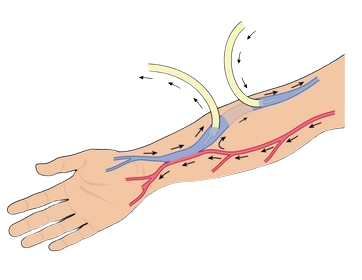Find the Best AV Fistula Doctors Online in Top Cities
Enter Your Details to know more

Enter Your Details to Proceed For AV Fistula
I Don’t want to enter my number
What is a AV Fistula?
An arteriovenous (AV) fistula is an abnormal connection or passageway between an artery and a vein. This condition can occur naturally or be surgically created for medical purposes, such as for hemodialysis in patients with kidney failure. In a natural AV fistula, the connection allows blood to flow directly from an artery into a vein, bypassing the capillaries, which can cause various complications. Surgically created AV fistulas are typically formed in the arm to provide easy access to the bloodstream for dialysis treatment.
Symptoms of AV Fistula
Symptoms can vary depending on the location and size of the fistula, and may include:
- Swelling: Around the area where the AV fistula is located.
- Pain: Discomfort or pain near the site of the fistula.
- Pulsing Mass: A bulging, pulsing lump under the skin.
- Changes in Skin Color: Red or blue discoloration of the skin over the fistula.
- Decreased Circulation: Coldness or numbness in the affected limb.
- Heart Problems: If a large AV fistula causes increased blood flow, it can lead to heart failure over time.
